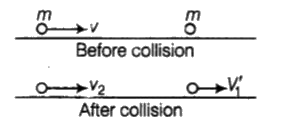If it known that out every 5 collisions, 1 has appropriate orientation and activation energy is 4 Kcal then % of effective collisions at 1000 K as per collisions theory will be :
20
0.2e−2
100e−2
20e−2
The correct Answer is:D
Topper's Solved these Questions
- CHEMICAL KINETICSBOOK - GRB PUBLICATIONCHAPTER - CHEMICAL KINETICSEXERCISE - Mechanism of Reactions
45 Videos
- CHEMICAL KINETICSBOOK - GRB PUBLICATIONCHAPTER - CHEMICAL KINETICSEXERCISE - compllcatio in first order reactions
17 Videos
- CHEMICAL KINETICSBOOK - GRB PUBLICATIONCHAPTER - CHEMICAL KINETICSEXERCISE - E. Methods to Monitor the Progress of Reaction
43 Videos
- CHEMICAL BONDING-IBOOK - GRB PUBLICATIONCHAPTER - CHEMICAL BONDING-IEXERCISE - Subjective Type
120 Videos
- COORDINATION COMPOUNDSBOOK - GRB PUBLICATIONCHAPTER - COORDINATION COMPOUNDSEXERCISE - SBJECTIVE TYPE
98 Videos
Similar Questions
Knowledge Check
If it known that 1 out of every 4 collisions has appropriate orientation and activation energy is 2 Kcal, then % of effective collisions at 500 K as per collision theory will be :
A25e−2Be2Ce−2D0.25e−2According to collision theory, which of the following is the criteria for an effective collision?
I. Activation energy
II. Proper orientationAOnly IBOnly IICboth I and IIDnone of theseAccording to the collision theory, only the effective collisions among the reacting species result in the products. In order that the collisions may be effective, the reacting species must have energy equal to or more than a certain minimum energy called threshold energy (E∘). Extra energy which has be supplied to the reactants to make collisions effective is known as activation energy (Ea). This is related to reaction rate with the help of Arrhenius equation, k=Ae−Ea/RT
The equation also helps in calculating the activation energy for a reaction at a specific temperature. In general, the rate of reaction is inversely proportional to the activation energy required.
Which of the following expressions gives the effect of temperature on the reaction rate?AIn k= In A−Ea/RTBIn k= In A+Ea/RTCIn k = A−Ea/RT)Dk= In A+InEa/RT
For a reversible reaction, the activation energy of a forward reaction is 85 KJ/mol . The net reaction is assoicated with the release of 15 KJ/mol . What is the activation energy of the backward reaction ? Explain it on the bais of the collision theory ?
View SolutionIn a photoelectric effect experimetent, a metallic surface of work function 2.2 eV is illuminated with a light of wavelenght 400 nm. Assume that an electron makes two collisions before being emitted and in each collision 10% additional energy is lost.
Q. After how many collisions will the electron be unable to come out of the metal?
View SolutionChoose the most appropriate option.
A ball of mass m moving at a speed v makes a head on collision with an identical ball at rest. The kinetic energy at the balls after the collision is 3/4th of the original. What is the coefficient of restitution?

View SolutionAccording to the collision theory, only the effective collisions among the reacting species result in the products. In order that the collisions may be effective, the reacting species must have energy equal to or more than a certain minimum energy called threshold energy (E∘). Extra energy which has be supplied to the reactants to make collisions effective is known as activation energy (Ea). This is related to reaction rate with the help of Arrhenius equation, k=Ae−Ea/RT
The equation also helps in calculating the activation energy for a reaction at a specific temperature. In general, the rate of reaction is inversely proportional to the activation energy required.
The plot of log k Vs 1/T helps to calculate
View SolutionAccording to the collision theory, only the effective collisions among the reacting species result in the products. In order that the collisions may be effective, the reacting species must have energy equal to or more than a certain minimum energy called threshold energy (E∘). Extra energy which has be supplied to the reactants to make collisions effective is known as activation energy (Ea). This is related to reaction rate with the help of Arrhenius equation, k=Ae−Ea/RT
The equation also helps in calculating the activation energy for a reaction at a specific temperature. In general, the rate of reaction is inversely proportional to the activation energy required.
The chemical reactions in which the reactants require high amount of activation energy are generally.
View Solution
